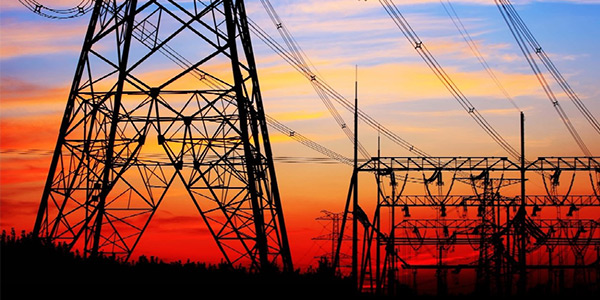By Amanda Durish Cook
MISO received FERC approval this week to require its generation developers to secure land for projects earlier in the interconnection queue over some protests from renewable developers.
The RTO will now require interconnection customers to demonstrate 100% site control 90 days before the proposed projects enter the first phase of the three-phase definitive planning phase (DPP) of the interconnection queue for study. It also scrapped the previous practice of accepting a $100,000 cash deposit in lieu of demonstrating site control.
FERC said the stricter process was a reasonable way for MISO to better manage its brimming interconnection queue. It also accepted MISO’s transition plan to grandfather interconnection requests submitted in prior DPP cycles from the changes.
“More stringent site control requirements, as proposed by MISO, may help to reduce the number of speculative, duplicative, and non-ready projects entering DPP Phase I,” the commission said Tuesday (ER20-41).
As of last month, MISO’s queue totaled 569 projects at nearly 89 GW of generating capacity. The RTO reported that more than 730 projects totaling almost 120 GW have entered the queue in the last three DPP cycles.
“Much of this capacity will not come to fruition and is the result of certain interconnection customers submitting multiple interconnection requests into DPP Phase I to find the most advantageous point of interconnection, a strategy that has resulted in numerous withdrawals,” FERC said. “We find persuasive MISO’s argument that the ability of interconnection customers to enter the queue without financial risk contributes to the submission of speculative projects, which negatively impacts the entire queue by causing delays, skewing study results, shifting costs to other customers and inflating milestone payments when these projects are withdrawn.”
The filing FERC accepted was MISO’s second attempt at more rigorous obligations on project owners. The RTO first proposed higher milestone fees in addition to the firmer site control requirements. However, it dropped its plan to change the first, $4,000/MW milestone payment to a variable cost representing 10% of the average network upgrade cost from the last three DPP cycles. FERC said the change would have resulted in accounting uncertainty and averages applied unfairly across the entire footprint. (See MISO Zeroes in on Queue Overhaul Filing.)
MISO will now allow different fuel types and multiple generation projects to share the same site, abandoning the first proposal’s requirement that project owners show exclusive use of land. As it proposed in the first filing, the new rules add a provision that 50% of milestone fees are considered at risk of not being refunded if they’re needed to help defray network upgrade costs should a project withdraw.
A group of renewable generation developers, Invenergy and the Solar Energy Industries Association had disputed MISO’s 50% milestone forfeiture, arguing that it didn’t show that the current practice of fully refunding the first milestone fee caused delay in queue studies. They also argued that withdrawing after paying the first milestone fee is natural, as MISO delivers the estimated costs of necessary network upgrades only after the milestone payment deadline has passed. Withdrawal after the queue’s first decision point is usually a “reasonable response” to expensive upgrade estimates, they said, and not the hallmark of a speculative project.
But FERC pointed out that MISO will now require a screening study more than two weeks before the DPP begins, thereby informing customers of potential thermal and voltage constraints. The new study “should provide interconnection customers with an awareness of what network upgrades may be necessary to accommodate the interconnection of their projects,” the commission said.
FERC also denied EDF Renewables’ request that it compel MISO to annually detail in reports how the 50% milestone forfeiture has a “meaningful impact on keeping speculative projects from entering the queue.”
EDF had also sought a defined endpoint for MISO’s harm tests on withdrawing projects and a deadline for it to return milestone payments to interconnection customers if no impact is found on other projects. The commission said it wouldn’t hold the RTO to deadlines on either, noting that project withdrawals can create ripple effects that impact other projects, even as they advance to later stages of the queue.
FERC urged MISO to be more transparent with customers over how it “will calculate harms caused by withdrawing interconnection customers and how it will distribute forfeited milestone payments to offset those harms,” but it did not direct the RTO to make an additional compliance filing.




